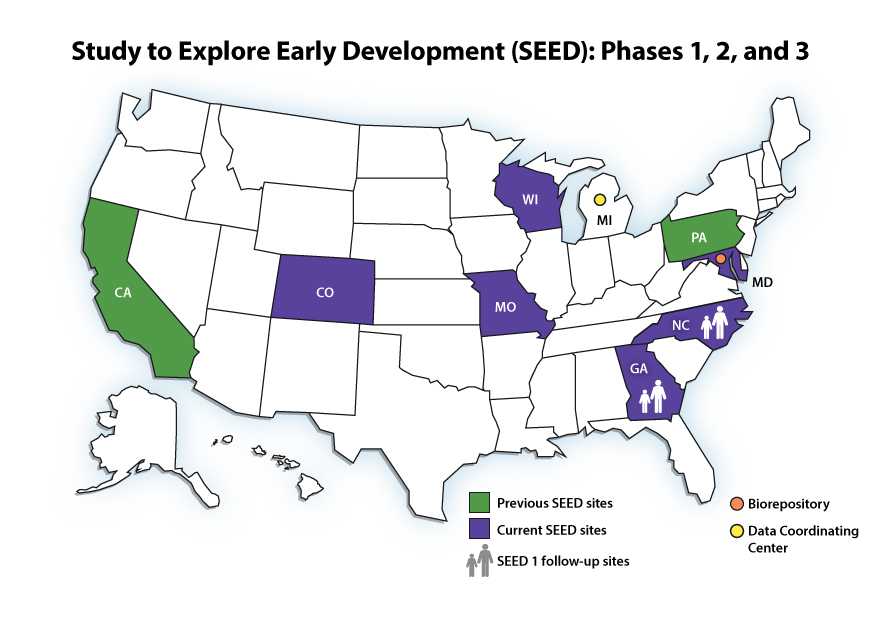Study to Explore Early Development (SEED)

The Study to Explore Early Development (SEED) is a multi-year study funded by CDC. It is currently the largest study in the United States to help identify factors that may put children at risk for autism spectrum disorder (ASD) and other developmental disabilities. Understanding the risk factors that make a person more likely to develop an ASD will help us learn more about the causes.
-
SEED Fact Sheet
SEED is being conducted in diverse communities across the country.
The research goals for SEED include learning about:
- Physical and behavioral characteristics of children with ASD, children with other developmental disabilities, and children without a developmental delay or disability
ASD is a complex disorder. We want to learn more about why people with ASD are the way they are—how they behave, grow, think, and interact with the world around them. We also want to know the same things about children with other developmental disabilities and those with typical development. - Health conditions among children with and without ASD
We are interested in learning more about the health conditions and disorders that might affect children with and without ASD. Some smaller studies have shown that certain medical conditions seem to be found more often among children with ASD and their families. SEED provides an opportunity to compare health conditions and health-related issues such as sleeping and eating patterns in children with ASD, in children with other developmental disabilities, and in children without a developmental delay or disability. - Factors associated with a child’s risk for developing ASD
We hope that SEED will give us a better idea which of the many possible risk factors that we will be evaluating seem to be associated with or related to ASD. The risk factors may be related to genes, health conditions, experiences of the mother during pregnancy, and the health and development of the child during infancy and the first few years of life.
The study will include children with ASD, children with other developmental disabilities, and children with typical development, ages 2-5 years.
The six SEED study sites and a data coordinating center are part of the Centers for Autism and Developmental Disabilities Research and Epidemiology (CADDRE) network.

To learn more, visit the SEED Frequently Asked Questions »
E-mail Your Friends
"Children with autism spectrum disorder are not being diagnosed as early as they could be. Learn the signs of autism and get help if you’re concerned."
Share on Facebook

“Many children with autism spectrum disorder (ASD) are not being identified as early as they could be. Early identification is the most powerful tool we have right now to make a difference in the lives of children with ASD.”
Share on Twitter
“Too many children w/ autism are not being identified as early as they could be. Earlier is better. #ActEarly”
- Page last reviewed: September 6, 2017
- Page last updated: September 6, 2017
- Content source:


 ShareCompartir
ShareCompartir